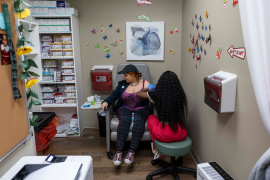New York City, August 1, 2005—Achieving a desirable, workable national health information network (NHIN) will cost $156 billion over five years in capital investment and $48 billion in annual operating costs, according to a new Commonwealth Fund–supported study published in the August 2nd issue of Annals of Internal Medicine. The estimates were developed by a panel of experts, including David J. Brailer, M.D., National Coordinator for Health Information Technology at the Department of Health and Human Services, Janet Corrigan, formerly of the Institute of Medicine, and now President and CEO of the National Committee for Quality Health Care, and others. In "The Cost of a National Health Information Infrastructure," Rainu Kaushal, M.D., of Brigham and Women's Hospital, David Blumenthal, M.D. of Massachusetts General Hospital, and colleagues detail the findings of the panel in the first published article to use a sound methodology to model and estimate the cost of implementing an NHIN across the United States, given the current state of IT infrastructure. "A national health information network is crucial to achieving a U.S. health care system that provides safe, effective, affordable, and accessible health care to all Americans," said Commonwealth Fund President Karen Davis. "This cost estimate is an important step towards realizing the goal of a truly high performance health system." Findings from a Commonwealth Fund survey of physicians and their use of IT published in Medscape General Medicine in December revealed that start-up costs was the number one barrier to physicians' adoption of IT, named a "major barrier" by 56%, and lack of uniform standards was second, with 44% of physicians saying it was a major barrier. "The federal government has an important role to play in solving the problems of cost and standards that are slowing the movement towards health care IT," said Anne-Marie Audet, M.D., vice president for Quality Improvement Programs at the Fund and lead author of the Medscape article. The survey of 1,837 physicians across the U.S. found that practice size plays a role, with physicians in solo and smaller practices more likely to cite barriers to IT adoption. Just thirteen percent of physicians in solo practice said they use electronic medical records, compared with 57 percent of physicians in practices of 50 or more physicians. Related reports:
- Information Technologies: When Will They Make It Into Physicians' Black Bags?, Anne-Marie Audet, M.D., M.Sc., Michelle Doty, Ph.D., M.P.H., Jordon Peugh, M.S., Jamil Shamasdin, Kinga Zapert, Ph.D., and Stephen Schoenbaum, M.D., M.P.H., Medscape General Medicine, Dec. 7, 2004
- Physicians' Views on Quality of Care: Findings From The Commonwealth Fund National Survey of Physicians and Quality of Care, Anne-Marie J. Audet, M.D., Michelle M. Doty, Ph.D, Jamil Shamasdin, and Stephen C. Schoenbaum, M.D., M.P.H., The Commonwealth Fund, May 2005


